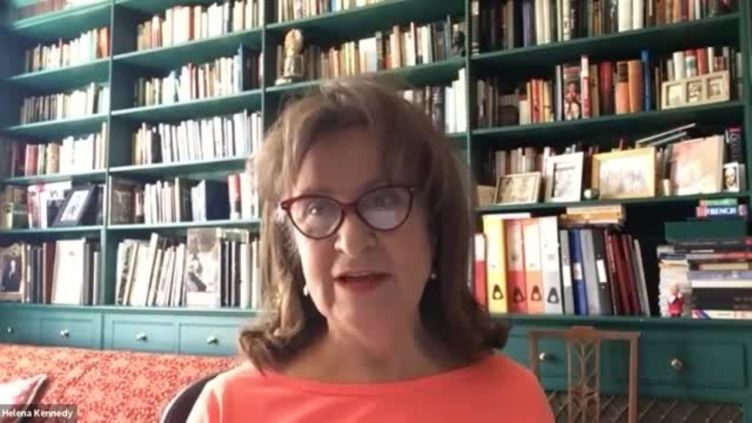Students at the School of Journalism, Media and Communication enjoyed perspectives from the wider world of media recently as two virtual conferences offered expert insights from guest speakers – including a famous former UK government spin maestro.
Author and journalist Alastair Campbell (pictured), who served as chief press secretary to ex-prime minister Tony Blair, joined MA International Public and Political Communication (IPPC) students for a week-long event which took a careful look at government messaging in times of crisis and uncertainty.
Students from the MA Global Journalism and BA Journalism Studies courses, meanwhile, discussed media issues with a tremendous line-up of speakers at International Journalism Week (IJW). Star names included The Guardian's legal director Gill Phillips and the eminent lawyer and civil liberties champion Baroness Helena Kennedy QC.
The theme of this year's International Journalism Week – an annual event in the school for almost a decade now – was media freedom and social justice. Undergraduates and MA Global Journalism students discussed these issues with experts from the UK and beyond, and were joined by counterparts from Sophia University in Tokyo, Japan and University of Maiduguri in Borno State, Nigeria.
Almost 200 students entered competitions relating to IJW themes, and in feedback 98 per cent described the week as "very relevant" or "somewhat relevant" to their course.
Speech writing and rhetoric
In his talk for the IPPC conference Alastair Campbell gave an overview of his ten-step approach to crisis communication alongside a summary of his thoughts on the current 'post-truth' media landscape – which he admittedly had a hand in shaping.
The IPPC event also featured special guest lectures from BBC Monitoring researcher Shayan Sardarizadeh and Emma Briant on the simultaneous rise of conspiracy narratives and the digital influence industry. A workshop on speech writing and rhetoric was led by Tony Blair’s chief speechwriter Philip Collins. Students also logged on for a screening of the documentary People You May Know, which explores data mining and political influence in the USA.
The final strand of the conference was devoted to presentations from students on the International Public and Political Communication degree. These covered topics ranging from the role of social media in politics to media framing of right-wing extremism, environmental activists and protest movements, and the way governments around the world have communicated the Covid-19 crisis.
Social media
Students took over the Journalism Studies Instagram account for the week, posting excellent content about both conferences, and many also tweeted their impressions of the events.
IPPC course leader Dr Jared Ahmad described the presentation strand of the event as "very much the highlight of the conference as it gave us an opportunity to hear from future practitioners and scholars of public and political communication".
He added: "Indeed, the success of the conference is really down to the students, and I would like to send a big thank you to the whole IPPC cohort for their contributions and enthusiasm, alongside our guest speakers for their time and wisdom."





